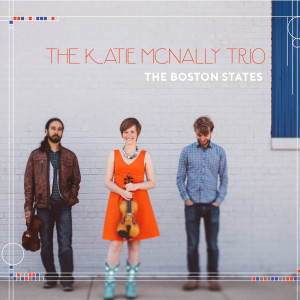 For decades, expatriate Cape Breton Islanders lived and worked in Boston because there were few jobs on the Nova Scotia island they called home. Many of them, in addition to working factory jobs of one kind and another, were excellent musicians, and they played their percussive, fiddle-based music in clubs around the Watertown neighborhood and other parts of Boston. The folks at home said, when they talked of their loved ones far away, “they’ve moved to the Boston States,” a name that’s still used today for Boston and greater New England.
For decades, expatriate Cape Breton Islanders lived and worked in Boston because there were few jobs on the Nova Scotia island they called home. Many of them, in addition to working factory jobs of one kind and another, were excellent musicians, and they played their percussive, fiddle-based music in clubs around the Watertown neighborhood and other parts of Boston. The folks at home said, when they talked of their loved ones far away, “they’ve moved to the Boston States,” a name that’s still used today for Boston and greater New England.
It’s a good title for fiddler Katie McNally‘s second full-length album. As you might guess from her name, she has a bit of Scottish in her background, and she grew up and learned to play in Boston, playing for dances, leading sessions, and learning from older fiddlers, including her mentor Hanneke Cassel.
McNally continues to grow into an impressive fiddler. Her chosen path looks to be one of fully exploring her roots and heritage, which is apparent on this disc that’s packed with Scottish and Cape Breton tunes. It kicks off with a sample of an old recording by the legendary Joe Cormier, one of those Cape Breton expats in the Boston States, the reel “Colin MacIntosh” which she seamlessly picks up after the first chorus and makes her own.
Before I go further I’d better bring in the other two members of this trio. Neil Pearlman is a fine journeyman pianist who accompanies McNally in the percussive, boogie-influenced style that drives Cape Breton dance music, and Shauncey Ali rounds things out with the mellow sound of his viola. It’s a different choice for a Celtic ensemble and one that sets this one apart.
Speaking of interesting choices, Pearlman moves to the Fender Rhodes for one of McNally’s own tunes, “The Martlet” on which Katie and Shauncey play some lovely counterpoint over the retro-but-modern sound of the Fender. This one is paired with a driving tune “Father John Angus Rankin” by one of Cape Breton’s most beloved fiddlers, the late Jerry Holland. I can just imagine the shy grin he might have shown at hearing the electric instrument on this fine rendition of his tune, which includes a swell solo passage by Ali and some real fireworks from McNally.
The trio also pays homage to another legendary Boston States fiddler, Bill Lamey, from whose repertoire Holland had “Rankin.” McNally beautifully catches the spirit of his lovely air “Down The Burn, Davey Lad” and the trio kicks up some dust with his Strathspey “The Fir Tree.”
One of McNally’s strengths, which I noted in reviewing her first solo effort Flourish, is in her transitions from one tune to another in a set. She continues and builds on that strength here, pairing tunes excellently and making transitions that sometimes are so seamless as to be hardly noticeable, or else built up to and thrillingly hit hard, as the occasion calls for. That kind of attention to detail is something that often eludes players many years her senior.
There’s plenty more along those lines on this delightful CD, and there are some guest performances including some step dancing from Wendy MacIsaac, who produced the disc; some piping from Finlay MacDonald on border pipes; and percussion from Cathy Porter. The liner has notes on all the tunes (in type that’s way too small and faint for old reviewers to read!). Kudos to Katie and the trio for delving deeply into this music’s roots and then carrying it forward with their own feelings and ideas.
(Self-released, 2016)
